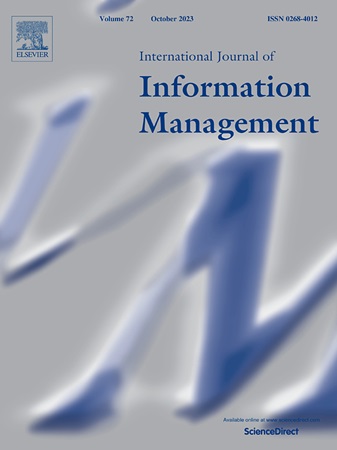了解电信诈骗中欺骗行为的决定因素
IF 27
1区 管理学
Q1 INFORMATION SCIENCE & LIBRARY SCIENCE
International Journal of Information Management
Pub Date : 2025-06-12
DOI:10.1016/j.ijinfomgt.2025.102936
引用次数: 0
摘要
以计算机为媒介的交流已经成为犯罪者欺骗潜在受害者的平台。尽管电信欺诈引起了相当大的兴趣,但有限的研究讨论了人们认为电信欺诈具有说服力的决定因素。本研究将社会认知理论与模仿欺骗理论相结合,探讨欺骗信息下受害者感知说服的前因后果。研究人员从300名欺诈受害者那里收集了数据,以检验所提出的模型。结果表明,欺骗的合理性、关系的建立和资源的获取对感知欺诈信息的说服力有显著的正向影响,而感知欺诈信息的说服力与欺骗的堕落有强烈的正相关。结果还显示,反欺骗自我效能感和基于奖励的结果预期调节了资源获取与感知说服力之间的关系,而来自机会成本的感知时间压力调节了感知说服力与欺骗失败之间的关系。讨论了几个理论和实践意义。本文章由计算机程序翻译,如有差异,请以英文原文为准。
Understanding the determinants of falls for deception in telecommunications fraud
Computer-mediated communication has become a platform on which perpetrators deceive potential victims. Although telecommunications fraud has attracted considerable interest, limited research has discussed the determinants of what people perceive as persuasive concerning telecommunications fraud. This study combines Social Cognitive Theory and Mimicry-Deception Theory to investigate the antecedents and consequences of victim-perceived persuasiveness with fraud message. Data collected from 300 fraud victims were examined to test the proposed model. The results showed that the plausibility of deception, building of rapport, and resource extraction significantly and positively influenced perceived fraud message persuasiveness, while perceived persuasiveness had a strong positive association with falls for deception. The results also revealed that both anti-deception self-efficacy and reward-based outcome expectations moderated the relationship between resource extraction and perceived persuasiveness, while perceived time pressure from opportunity costs moderated the relationship between perceived persuasiveness and falls for deception. Several theoretical and practical implications are discussed.
求助全文
通过发布文献求助,成功后即可免费获取论文全文。
去求助
来源期刊

International Journal of Information Management
INFORMATION SCIENCE & LIBRARY SCIENCE-
CiteScore
53.10
自引率
6.20%
发文量
111
审稿时长
24 days
期刊介绍:
The International Journal of Information Management (IJIM) is a distinguished, international, and peer-reviewed journal dedicated to providing its readers with top-notch analysis and discussions within the evolving field of information management. Key features of the journal include:
Comprehensive Coverage:
IJIM keeps readers informed with major papers, reports, and reviews.
Topical Relevance:
The journal remains current and relevant through Viewpoint articles and regular features like Research Notes, Case Studies, and a Reviews section, ensuring readers are updated on contemporary issues.
Focus on Quality:
IJIM prioritizes high-quality papers that address contemporary issues in information management.
 求助内容:
求助内容: 应助结果提醒方式:
应助结果提醒方式:


